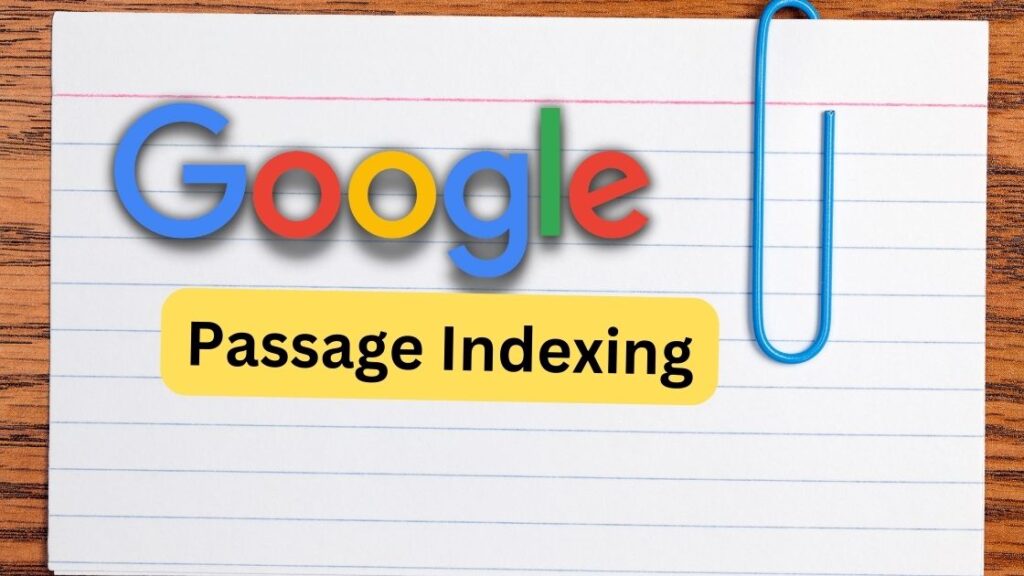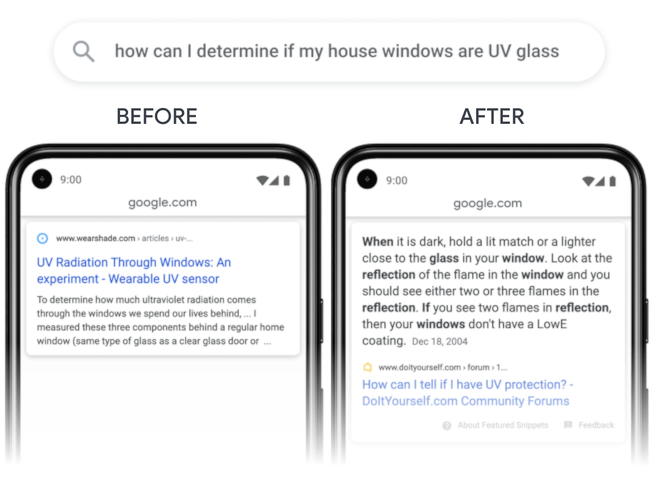
What is Passage Indexing?
In Google’s most recent update if you have written an excellent passage inside the article, then that section will be indexed in Google. This implies that with one paragraph your site page will be indexed in Google, which will carry great traffic to your site.
Google has announced that they anticipate this to “improve” 7% of search queries. This implies that with one section your site page will be listed in Google, which will carry great traffic to your site. Google remains to be indexing full pages however Google’s techniques will think about the content and that means of passages when figuring out what’s most related.

About the Update
Passage Indexing is basically about improving results for long-tail search queries -often niche queries which are hard to find a particular answer to, even with Google Indexing. Currently, Google’s method of indexing is based on whole page indexing, where web pages are assigned to a certain topic and we can find out corresponding subtopics on the page.
With the new update of passage indexing, Google can now also index specific passages more precisely, returning them in the results for specific long-tail search queries. According to Google, this update will improve 7 percent of all search queries.
When Will Google Launch Passage Based Indexing Feature?
Google announced a number of upcoming changes and improvements coming to Search, including the revelation that it will soon be able to identify individual passages on a webpage to surface relevant content in the search results. Google intends to reveal this update to English language nations toward the end of 2020, with support for other languages following early in 2021.
What does Passage Indexing mean for SEOs and digital marketers?
We can expect the extent of Featured Snippets in Google search result to increase, meaning SEOs and digital marketers need to be checking those (long-tail) keywords that are applicable to them for changes in terms of what is included in Featured Snippets.
If we can expect to see a trend towards Google ranking web page passages as standard snippets rather than whole pages, the length of the content on a web page is basically of no result. Google’s AI-based Passage Indexing implies that site content is probably going to turn out to be more comprehensive once more. Long-form content, which covers all the relevant subtopics related to a given topic, now has better chances of getting traffic and conversions through great rankings for long-tail search queries, too.
For website operators, SEOs and digital marketers, this means they will have to ensure that content is holistic, covers all the subtopics and key user questions on the main topic, is well structured and easy to navigate, and that all the pattern markups are executed. With the new Passage Indexing feature, long-tail search queries can also achieve significant rankings, ideally bringing about increased traffic and conversions.
Featured Snippets for websites do in fact help increase CTR and traffic. In fact, this type of snippet very often answers the detailed question, too, meaning the user does not have to click any further. In recent years, this has led to more and more zero-click searches. In fact, half of all queries are now zero-click searches.
What does Passage Indexing mean for Google and for users?
This most recent indexing update takes Google one step further away from its function as a search engine transforming it into something of a “response engine” that seeks to give users the answer to their questions as quickly as possible.
This is a win-win situation for both users and Google because the user is not first directed to a search results web page where they have to plough through multiple chapters and thousands of words to find the answer to their potentially very detailed and specific question. Instead, the user is given the answer directly in the form of a Featured Snippet, which is a clear plus for the user. The benefit for Google is that the user stays on its platform.
How can a Digital Marketer identify all the different user intentions related to his topic?
There are various things that SEOs and content marketers can do to make web pages truly holistic and ensure they rank for subtopics and key user questions as well as for the main topic. Various tools can be used to generate thorough content on a web page to ensure you are primed for Google’s Passage Indexing Update.
- Google Suggest: Google Suggest or auto complete is a Google search engine function. As you type your query into the search field, Google will automatically recommend popular searches and “auto complete” your query. By this you can identify trends, i.e., see what users might be searching for in connection with the main topic.
- Use “Similar search queries” and the “People also search for” widget: These two widget blocks on the Google search results page can also be used for inspiration as to what topics users tend to search for. The “People also search for” widget shows a number of questions and answers in a collapsible content block.
Leading Digital Marketing Training Institute in Bhubaneswar, Odisha. We are unique in providing the best quality training with hands on experience with live projects.